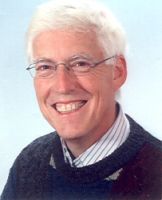Arjo Vanderjagt, born in Son, the Netherlands, in 1948. Ph.D. from the University of Groningen. Professor of the History of Ideas at the University of Groningen.
Fellow (1 September 2005 – 30 June 2006)
HUMANISM NORTH OF THE IJSSEL AND RHINE, 1450-1550
Northern humanism (north-east of the IJssel and Rhine Rivers: Frisia and Westphalia) can be usefully defined by three more or less contemporary accounts: 1) Erasmus’s letter to Cornelis Gerard Aurelius written from Steyn in 1489. It seems that Aurelius had complained to Erasmus that there was virtually no-one in the North ‘who follows the tracks of antiquity’; Erasmus then disagrees, writing that he sees ‘countless well-schooled writers of the present day who approach quite closely the ancient ideal of eloquence’, and he lists Rudolph Agricola, Alexander Hegius, Friedrich Morman and others; 2) Goswinus van Halen’s letter of 1528 to Albert Hardenberg (1510-1574) about the scholars of the Cistercian St Bernard abbey at Aduard (near Groningen) after the middle of the fifteenth century. Goswinus, who had been ‘famulus’ to Wessel Gansfort, compares the abbey to an ‘academy’ for its wealth of scholarly discussions. Among the visitors to the abbey, he mentions Rudolph Agrciola, Gansfort, Rudolph von Langen, Jacobus Canter and many others; 3) Erasmus’s remarks in his Ciceronianus (through a discussion by Bulephorus and Nosoponus) of 1528 (LB I 1013A-1014D / ASD 1-2 678-427. This passage discusses the most important scholars of Frisia and Westphalia: Agricola, Canter and his family, Hegius and others.
Among the most important sources of this humanism – apart from the works of its partisans – are the letters by the principal players, especially those of Agricola and his correspondents, and Wessel Gansfort.This material was carefully studied and it was possible to determine two ‘geographic’ loci of what Agricola calls ‘the republic of learning of our fatherland’: Aduard Abbey and the Castle at ‘s-Heerenbergh.
A first draft version of this finding was presented orally at two symposia. Moreover, further investigation was done into the movement ad fontes of these humanists, concentrating particularly on their reading of the Hebrew Old Testament. Results of this have been published or are ‘in press’. Eventually, a monograph is envisaged on this material.
Other work was done on the intellectual life of fifteenth-century Burgundians (e.g. Hugonet, Olivier de La Marche), which will soon be published in articles.
